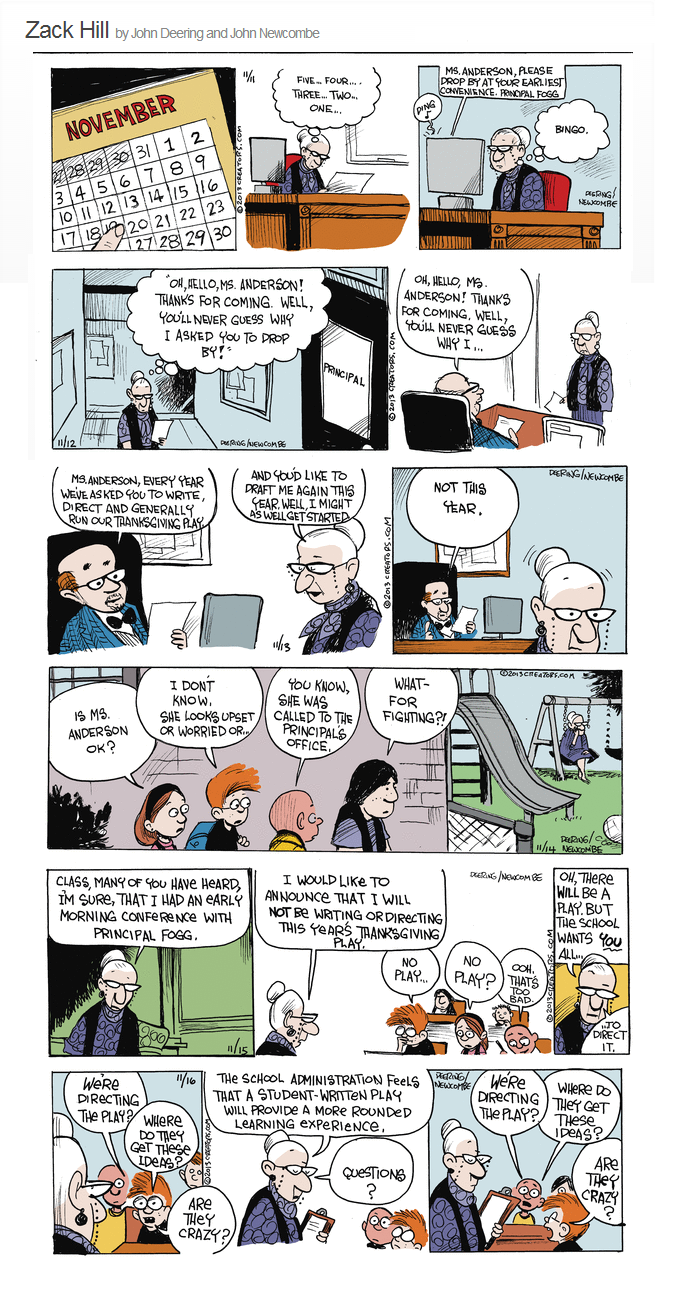► What is the "Shift”, the "Transformation" in public education K-12 in the 21st Century?
√ Many Western nations are planning or are in the early stages of implementation.
√ Common Core Standards, 21st Century Skills, Personalized Learning are names used.
Huge thanks to two brilliant cartoonists — John Deering and John Newcombe — who vividly are giving us another tool to help decipher this new social experiment tossed into our laps.

Where Do They Get These Ideas?
Is the school administration itself simply a parrot of even more distant managers? Has some travelling lobby of consultants or change-agents been in town lately?
What is the literature brought forward that supports this SHIFT that puts students in charge? And why? What are the intended outcomes?
Is there, by chance, some international connection? UN agencies? International organizations?
Well, this OECD news release (2003) gives more clues about an envisioned new global social order.
http://148.228.165.6/fpes/OECD.pdf
Individuals are to learn to “function in groups and social orders” to mobilize the “social and behavioral components including attitudes, emotions, and values and motivations.”
IS THAT CRAZY? Or some deliberate attempt to actually manipulate human behavior for a new world order? Some people still consider human nature to be infinitely "malleable" !
The shifts we are now seeing and talking about, 10 years after that OECD report are:
√ from individual to collective,
√ from “sage on the stage to guide at the side”,
√ from content to process,
√ from knowledge and skill based to inquiry/discovery-based,
√ higher-order comnpetencies needed — creativity, collaboration, critical thinking
√ from reporting to parents to communicating with parents,
As a long time observer and activist in parent rights I am seeing these changes happening — NOW — with very minimal preparation. I worry about the psychological damage and meltdowns resulting from ill-equipped push already happening. Parents and grandparents are witness to family anxieties.
I worry the most because this shift is experimental and untested and questionable. There are no safeguards. Protocols on human psychological experimentation are absent. And, it’s being foisted on an uninformed and uninvited public, without consent. In other words, why is this shift so hasty, stealthy,so programmed and giving the appearance of being shifty — surreptitious, dubious, devious and deceitful?
“progressives are forever ready to mold and remold society at will and have no doubt about their ability to control events.” – Albert Hirschman